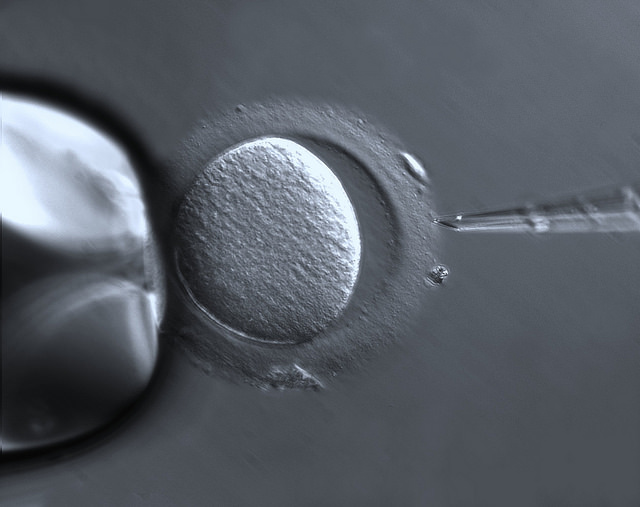Just Say No to Editing Human Embryos for Reproduction
By Hille Haker,
Leaps Magazine
| 10. 26. 2017
Over the last few decades, the international community has issued several bioethical guidelines and legally binding documents, ranging from UN Declarations to regional charters to national legislation, about editing the human germline–the DNA that is passed down to future generations. There was a broad consensus that modifications should be prohibited. But now that CRISPR-cas9 and related methods of gene editing are taking the world by storm, that stance is softening–and so far, no thorough public discussion has emerged.
There is broad agreement in the scientific and ethics community that germline gene editing must not be clinically applied unless safety concerns are resolved. Predicting that safety issues will indeed be minimized, the National Academy of Sciences issued a report this past February that sets up several procedural norms. These may serve as guidelines for future implementation of human embryo editing, among them that there are no “reasonable alternatives,” a condition that is left deliberately vague.
I regard the conditional embrace of germline gene editing as a grave mistake: It is a dramatic break with the previous idea of a ban, departing...
Related Articles
By Diaa Hadid and Shweta Desai, NPR | 01.29.2026
MUMBRA, India — The afternoon sun shines on the woman in a commuter-town café, highlighting her almond-shaped eyes and pale skin, a look often sought after by couples who need an egg to have a baby.
"I have good eggs,"...
By Roni Caryn Rabin, The New York Times | 01.22.2026
The National Institutes of Health said on Thursday it is ending support for all research that makes use of human fetal tissue, eliminating funding for projects both within and outside of the agency.
A ban instituted in June 2019 by...
By Mike McIntire, The New York Times | 01.24.2026
Genetic researchers were seeking children for an ambitious, federally funded project to track brain development — a study that they told families could yield invaluable discoveries about DNA’s impact on behavior and disease.
They also promised that the children’s sensitive...
By Phil Galewitz, NPR | 01.20.2026
Serenity Cole enjoyed Christmas last month relaxing with her family near her St. Louis home, making crafts and visiting friends.
It was a contrast to how Cole, 18, spent part of the 2024 holiday season. She was in the hospital...




